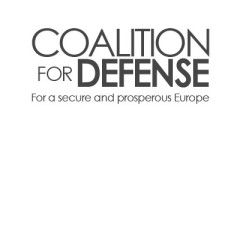Visa-free regime for Ukraine: Mikhail Pashkov assessed Poroshenko’s optimism
The optimism of the President of Ukraine Petro Poroshenko in relation to granting Ukraine visa-free regime with the European Union has its grounds. But the length of this process is difficult to determine due to a number of factors beyond the scope of Ukraine. The issue of a visa-free regime should not come to the forefront in the European...
Belarus to Host Second Edition of European Games
Denmark cries foul as Baku, the games’ first host, passes the torch to Minsk, the only candidate for the 2019 competition. …read more Source: Transitions Online...
NGOs: Reject Russia’s Bid to Join UN Human Rights Body
Russia’s role in Syria should disqualify it from representing Eastern Europe at the world’s foremost human rights body, global NGOs say. …read more Source: Transitions Online...
Giving the public an opportunity to pay utility bills in instalments – is a half measure that does not solve the payment problem. That is what Volodymyr Omelchenko, Director for energy Programmes of the Razumkov Centre told ZIK news agency.
Giving the public an opportunity to pay utility bills in instalments – is a half measure that does not solve the payment problem. That is what Volodymyr Omelchenko, Director for energy Programmes of the Razumkov Centre told ZIK news agency. “We have a lot, more than 5 million people who get subsidies. The Government is very concerned...
How to attract investments in Ukraine We need a straightforward policy to ensure that investors feel more confident
The National Bank of Ukraine predicts 3-4% GDP growth in 2017 and up to 4-5% in 2019-2020. Based on current affairs and trends, this estimate seems quite reasonable. I cannot call it too optimistic, or pessimistic. But, if you ask whether this growth is enough for Ukraine then the answer is “no.” Unfortunately, 3-4% – a level...
Cambodia’s Peace After 25 Years
This week marks 25 years since the Paris Peace Accords marked the official beginning of the end of the violent civil war in Cambodia. The anniversary offers an opportunity to reflect on the hard-won lessons of how to rebuild after decades of conflict, the challenge of postwar justice, and how Cambodian peacebuilding efforts might be useful to...
The Decline of the West, and How to Stop It
Published by: nytimes.com By JAVIER SOLANA and STROBE TALBOTT OCT. 19, 2016. WASHINGTON — For most of the last 70 years, the United States, Canada and much of Europe have constituted a vast zone of peace, prosperity and democracy. The trans-Atlantic community has grown to over 900 million inhabitants of more than 30 countries. It has set an...
Syria, Brexit and migrants – is there any place for Ukraine on the international agenda?
By Sergiy Gerasymchuk, Project Coordinator, Foreign Policy Council “Ukrainian Prism”. Events, which happened at the beginning of October 2016 confirmed that the trend of recent months, when the dominant topics on international agendas were safety and finding ways to guarantee it, is still valid. The crisis in Syria, which caused the waves of...
The International Dimension of the Fight for Aleppo in Syria
The offensive by Bashar al-Assad’s military, supported by Russian troops, on Aleppo—Syria’s largest city—might be successful. This large-scale operation was facilitated by the improved relations between Russia and Turkey and because the United States has only limited military options at its disposal. If Aleppo falls, Assad will have...
October 20th, 2016
CHINA Rodrigo Duterte and Xi Jinping Agree to Reopen South China Sea Talks Jane Perlez, THE NEW YORK TIMES President Rodrigo Duterte of the Philippines met with China’s leader, Xi Jinping, on Thursday, as part of a state visit that the United States is watching closely for further signs of a warming relationship. No major agreements were...








